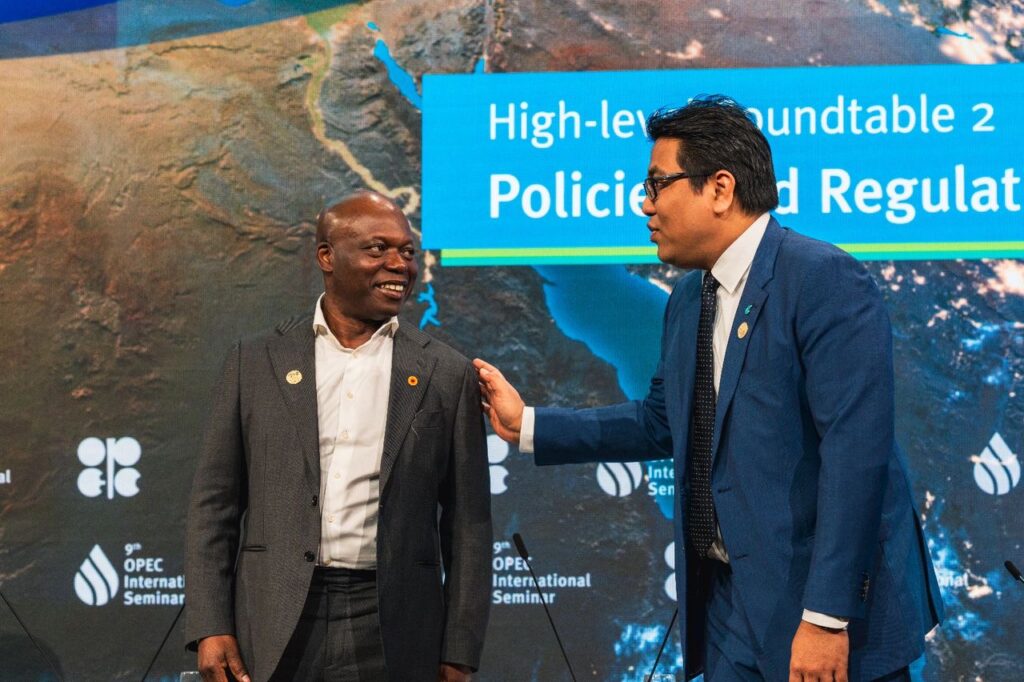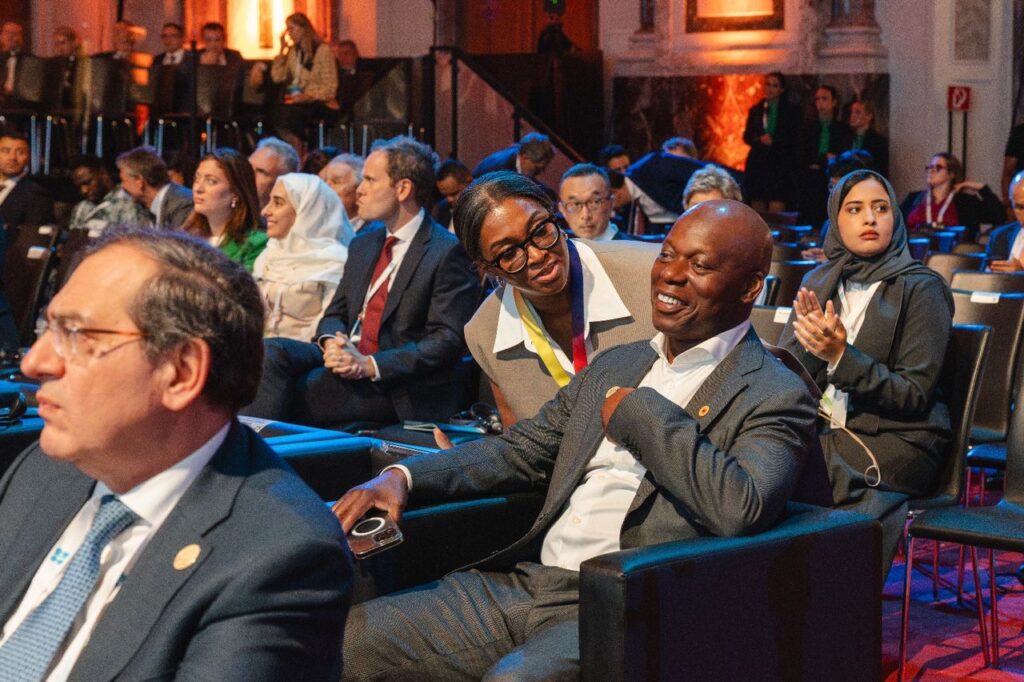
By Usman Ishaq Shehu
PhD Candidate | Editor in Chief J.O.Comms | Public Affairs Analyst and Strategic Communicator
Vienna Austria July 9 2025
Wale Tinubu Group Chief Executive Officer of Oando PLC delivered a powerful and timely intervention at the high level OPEC International Seminar in Vienna Austria. Speaking at Roundtable 2 titled “Policies and Regulations A Just and Realistic Energy Future” he made a compelling case for policy realism equitable access and Africa’s rightful place in the global energy transition. “As we debate global energy policies I believe the real challenge lies in what I’d call global confusion” he stated.

In a room filled with global influencers and decision makers Tinubu did not mince words. He described the current global energy conversation as one that frequently ignores the lived realities of developing nations. Africa contributes less than 3 percent of global emissions yet bears a disproportionate share of climate related suffering. Worse still 45 percent of Africa’s population still lacks access to electricity exposing the contradiction at the heart of the global energy agenda. “It’s not realistic to tell countries with no electricity that they can’t develop their gas or oil” he continued. “We need practical holistic policies that reflect real world requirements not theoretical ideals that flip flop with political cycles.”

Tinubu called for an international framework built on justice where developing nations are not punished for trying to industrialise responsibly. He stressed the importance of credit systems global subsidies and multilateral support mechanisms that allow African nations to responsibly develop their own energy resources especially natural gas.

Wale Tinubu’s message was not isolated from the domestic political landscape. His remarks closely align with the Renewed Hope energy strategy of President Bola Ahmed Tinubu which has placed natural gas at the core of Nigeria’s transition to a secure affordable and sustainable energy future. From the scale up of CNG adoption and pipeline infrastructure to multibillion naira partnerships aimed at gas commercialisation President Tinubu’s economic blueprint treats gas not as an afterthought but as a transitional lifeline for growth and stability. Wale Tinubu as a private sector leader reinforced this national vision on a global stage and underscored the alignment between business leadership and national policy.
In a particularly direct portion of his remarks Tinubu addressed the hypocrisy of Western energy narratives. “We’ve seen large private firms set ambitious green targets only to roll them back. That’s why this room with so many influential voices must push for a level playing field that recognises gas as a legitimate transition fuel.” His words struck at the heart of growing disillusionment in the Global South where climate commitments from wealthier nations often fall short and political cycles in donor countries dictate whether vital energy projects live or die. Tinubu challenged multilateral institutions to deploy long term capital even into projects without immediate profits warning that the private sector cannot and should not shoulder the burden alone.

Tinubu’s Vienna intervention was not merely a corporate speech. It was a statement of African energy sovereignty. It was a demand for fairness clarity and investment. His speech complemented Nigeria’s domestic efforts to reposition itself as a gas powered industrial hub and called on the international community to stop speaking in contradictions. As Nigeria continues to lead the continent’s energy reform conversation under President Bola Ahmed Tinubu Wale Tinubu’s voice bold factual and unapologetic adds significant weight to the demand for a just and realistic global energy future.
